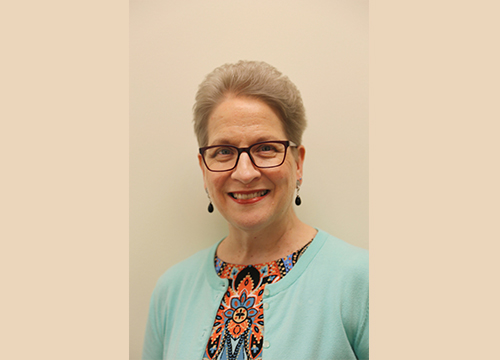14th Sunday in Ordinary Time Is 66:10-14c; Ps 66:1-3, 4-5, 6-7, 16, 20; Gal 6:14-18; Lk 10:1-12, 17-20
This Sunday’s reading from Isaiah just might make half the assembly squirm and the other half blush, as it announces the rebirth of Jerusalem in the earthy tones of womanhood. God’s life-giving generosity comes across in imagery so feminine — “suck fully,” “milk of her comfort,” “nurse with delight,” “abundant breasts” — it practically sings off the page in a motherly mezzo- soprano. Regardless of our post-modern modesty, such language made good sense to our ancestors in faith.
In ancient Mediterranean culture, mothers typically nursed their children for several years, with boys, the favored offspring, kept at the breast longer than girls. For people living off the land, prosperity meant abundant milk and healthy children; scarcity meant scanty milk and infant mortality. Thus, milk appears often in the Hebrew Testament as a sign of plenty.
For example, throughout the desert journey of Israel, the promised land of Canaan carries along the hopeful description “flowing with milk and honey.” Isaiah 55’s opening invitation, “All you who are thirsty, come to the water!” concludes with the phrase, “drink wine and milk!”
Where does all this milky talk take us? To a stunning conclusion: The Lord God claims the role of mother to Israel — and to us — saying today, “… as a mother comforts her child, so I will comfort you…”
In a not-so-subtle effort to balance things, the framers of the Lectionary pair this reading with verses from Psalm 66 that speak of “tremendous deeds” and God ruling “by his might.”
Familiar references to Exodus (“He has changed the sea into dry land…”) and Israel’s entry into the Promised Land (“… through the river they passed on foot…”) round out the solid, masculine imagery. Only the final line hints at a softer side: “Blessed be God who refused me not my prayer or his kindness!”
The second reading, from the final verses of St. Paul’s letter to the Galatians, builds on last Sunday’s selection from the same book. (In Ordinary Time, second readings come from New Testament books read in course, meaning the selections appear in the Lectionary in the order that they appear in the Bible.)
Paul says here, “For neither does circumcision mean anything, nor does uncircumcision, but only a new creation.” Translation: When it comes to salvation, what we humans do means nothing; what God does means everything.
Based on the context of conflict that Paul describes throughout his letter to the Galatians, “circumcision” here stands for adherence to the law of Moses. Against those who would require Gentile believers to observe the Jewish law, Paul has argued that all of us are saved by God’s grace, freely and generously given. We do not earn it.
For Paul, adherence to law too easily leads to reliance on ourselves, rather than on God — on human effort, rather than on God’s grace. This is the “yoke of slavery” that we heard about in last Sunday’s second reading. Galatians 5:4 makes his point clear: “You are separated from Christ, you who are trying to be justified by law; you have fallen from grace.”
Remember: In Paul’s own life, strict adherence to the law had led to self-righteous judgment of others and estrangement from God. He speaks from experience. Relying on rules, we build walls in relationship, dividing ourselves from God and from people.
St. Paul’s theme of reliance upon God carries through to today’s Gospel. Jesus sends out the 72 to proclaim the kingdom of God in deed and word. Dispatched in pairs, these disciples go ahead of Jesus into the towns and villages he intends to visit. He tells them to take nothing extra along for their upkeep, but to rely on the abundance of God’s providence, made manifest in the generous hospitality of ordinary people.
Embracing this risky mode of travel-in-trust, they enjoy surprising success and return rejoicing. God has proven trustworthy — in caring for their needs and in accomplishing his mighty deeds through them.
Melanie holds a master’s in pastoral studies from Loyola University, New Orleans.

